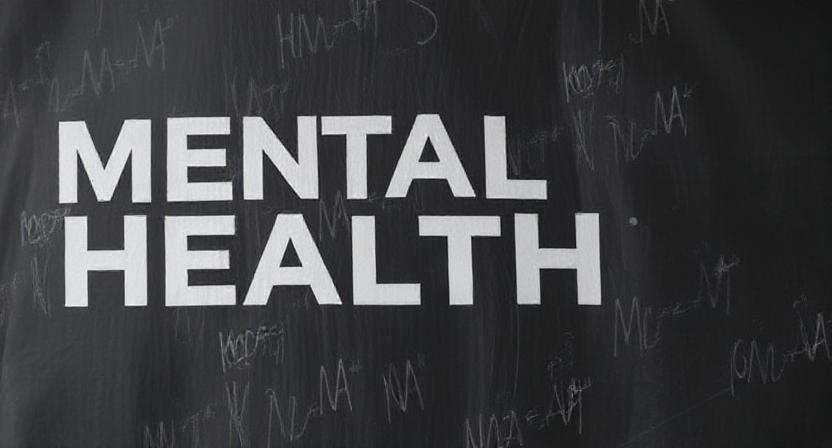How to prepare mentally and physically for pregnancy?
What are some ways to mentally prepare for the experience of having your first child
Pregnancy is one of life’s most beautiful yet intense journeys. While many focus on the physical aspect — vitamins, nutrition, and doctor visits — preparing for pregnancy also involves your mental health and emotional wellbeing. For me, that preparation was even more intentional because I live with bipolar disorder.
This post is a personal account of how I approached pregnancy from all three angles: physical, mental, and emotional. Whether you’re planning to conceive, navigating fertility challenges, or just thinking ahead, I hope my story and tips help guide your path with more clarity and calm.
1. Physical Preparation
Pregnancy places significant demands on the body, so I wanted to start strong. Here’s what I focused on:
✔ Prenatal Vitamins and Nutritional Support
I began taking prenatal vitamins at least three months before trying to conceive. Folic acid, iron, DHA, and calcium were top priorities. I also worked with a nutritionist to create a balanced meal plan that supported hormone health and energy.
✔ Exercise and Movement
Gentle workouts like walking, yoga, and light strength training helped me feel strong, reduce stress, and build the endurance I knew I’d need later.
✔ Medical Screenings and Checkups
I scheduled a preconception visit with my OB-GYN. We reviewed my medications, ran standard tests, and made sure my body was ready. Since I live with bipolar disorder, my psychiatrist and OB worked together to manage my medication plan safely for pregnancy.
2. Mental Health Preparation
Mental health is often overlooked in pregnancy prep — especially for those with existing conditions like bipolar disorder. For me, this part of the journey was the most delicate and vital.
✔ Therapy and Psychiatric Support
Before even trying to conceive, I revisited therapy to strengthen my coping skills. Cognitive behavioral therapy (CBT) helped me manage intrusive thoughts and anxiety around childbirth and motherhood.
Working closely with my psychiatrist, we adjusted my treatment plan to balance the needs of my bipolar disorder with the safety of pregnancy. Staying on or tapering off medication is a deeply personal decision — one that should always be made with medical guidance.
✔ Stress Management Tools
I began a daily mindfulness practice and kept a journal. These tools helped me stay grounded when my mood felt unpredictable. I also learned emotional regulation techniques that would later help during pregnancy hormones and postpartum shifts.
✔ Support System
Mental health thrives in community. I made sure I had trusted people around me — my partner, therapist, friends, and even online support groups for moms with bipolar disorder.
3. Emotional Preparation
Emotional readiness for pregnancy often gets lost under to-do lists and ovulation tests. But it’s just as critical as eating right or taking vitamins.
✔ Letting Go of Perfection
I had to unlearn the myth of the “perfect mom” and accept that my journey might look different. That meant forgiving myself ahead of time for not always having it together.
✔ Preparing for Change
Pregnancy changes everything — your body, identity, relationships, and time. I gave myself permission to grieve old routines while welcoming new ones. I also had honest conversations with my partner about parenting values and expectations.
✔ Reading and Reflecting
Books like The Fourth Trimester and What No One Tells You gave me emotional tools to handle the upcoming challenges. I also wrote letters to my future child and journaled my fears and hopes.
Top 20 FAQs About Preparing for Pregnancy (Especially with Mental Health in Mind)
1. When should I start preparing for pregnancy?
Ideally, 3–6 months before trying to conceive — physically and mentally.
2. What are the best prenatal vitamins to take?
Look for folic acid (400–800 mcg), iron, calcium, vitamin D, and DHA. Consult your doctor for specific brands.
3. Can I get pregnant if I have bipolar disorder?
Yes, absolutely. With proper planning and support, many people with bipolar disorder have healthy pregnancies and families.
4. Do I have to stop my bipolar medication before getting pregnant?
Not always. Some medications are considered safer than others during pregnancy. Never stop without speaking to your psychiatrist.
5. What types of therapy help during pregnancy prep?
CBT, mindfulness-based cognitive therapy (MBCT), and interpersonal therapy are especially helpful.
6. How can I manage anxiety before pregnancy?
Meditation, therapy, journaling, and setting realistic expectations can help.
7. How often should I see my OB-GYN before pregnancy?
A preconception check-up is a great starting point, followed by regular care once pregnant.
8. Is it safe to exercise while trying to conceive?
Yes — unless advised otherwise. Moderate movement helps support fertility and mood.
9. Can bipolar disorder affect fertility?
The condition itself doesn’t usually affect fertility, but medications and lifestyle can. Discuss with your doctor.
10. How do I build a pregnancy support system?
Talk to friends, join prenatal or mental health support groups, and involve your partner or family.
11. What if I feel emotionally unready to be a parent?
That’s normal. Therapy, reflection, and time can help you explore those feelings without judgment.
12. Should I track ovulation while preparing mentally?
Only if it helps you. Some people find tracking empowering; others find it stressful.
13. How do I talk to my partner about mental health and pregnancy?
Be open, honest, and specific. Let them know how they can support you and what signs to look out for.
14. Is journaling helpful during pre-pregnancy planning?
Yes, it can help you process fears, goals, and changes in identity.
15. What lifestyle changes should I make before getting pregnant?
Quit smoking, limit alcohol, manage stress, sleep well, eat balanced meals, and maintain a healthy weight.
16. How does stress affect fertility?
Chronic stress can impact hormone balance and menstrual cycles. Mental health care helps reduce this.
17. Can I still have a birth plan with a mental health diagnosis?
Absolutely. Include plans for emotional support and postpartum care.
18. What are early signs my mental health might need more support?
Changes in sleep, mood swings, loss of interest, or increased anxiety are red flags. Seek help early.
19. Should I join a support group?
Yes, especially if you have a mental health condition. Groups offer community and shared experience.
20. What if pregnancy doesn’t happen right away?
It’s okay. Be kind to yourself, and continue supporting your mental and physical health. Speak to a fertility specialist if needed.
Final Thoughts
Preparing for pregnancy is about more than ovulation calendars and prenatal pills. It’s about caring for your body, nurturing your mental health, and cultivating emotional resilience. For those of us living with conditions like bipolar disorder, that journey might take a bit more planning — but it’s 100% possible.
With the right support, a proactive mindset, and compassion for yourself, you can step into this life-changing chapter with strength and clarity. Whether you’re just beginning or well along your path, remember: there’s no one “right” way to prepare — only the way that honors your mind, your heart, and your future family.



